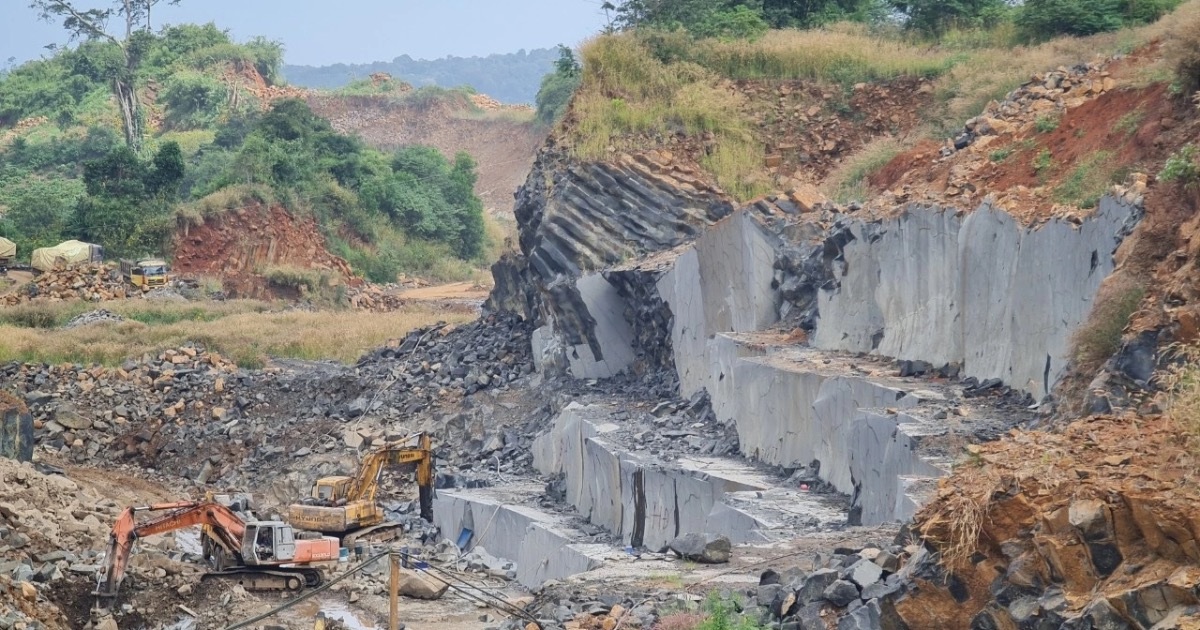Kết luận thanh tra của Bộ Tài nguyên và Môi trường vừa công bố đã chỉ ra hàng loạt sai phạm trong hoạt động khai thác khoáng sản tại tỉnh Đắk Nông. Những vấn đề này không chỉ ảnh hưởng đến môi trường mà còn đặt ra câu hỏi về tính minh bạch và hiệu quả quản lý tài nguyên.
Tình Hình Cấp Phép Khai Thác Khoáng Sản
Từ năm 2011, UBND tỉnh Đắk Nông đã cấp 86 giấy phép khai thác khoáng sản mà không thông qua đấu giá quyền khai thác. Điều này bao gồm 46 giấy phép thăm dò và 40 giấy phép khai thác chính thức. Một số trường hợp cụ thể như Công ty TNHH Xây dựng Nam Hải được cấp phép khai thác mỏ đá bazan Buôn Nui với diện tích 12ha, trong đó gần 8ha chưa được phê duyệt trước ngày 1/7/2011 – vi phạm quy định của Chính phủ.
Trụ sở UBND tỉnh Đắk Nông (Ảnh: Daknong.gov.vn).
Vấn Đề Tính Tiền Cấp Quyền Khai Thác
Thanh tra phát hiện nhiều quyết định phê duyệt tiền cấp quyền khai thác khoáng sản từ năm 2014-2017 dựa trên công suất ghi trong giấy phép thay vì trữ lượng thực tế, điều này không đúng quy định. Đặc biệt, việc áp dụng mức giá 100.000 đồng/m³ cho đá hộc vào năm 2015 cũng bị coi là không phù hợp khi lẽ ra phải là 130.000 đồng/m³ theo quy định.
Ngoài ra, tỉnh Đắk Nông còn tự ý khoanh định khu vực không đấu giá quyền khai thác đối với quặng Antimon và Wolfram mà chưa được sự chấp thuận từ Bộ Tài nguyên và Môi trường, vượt quá thẩm quyền theo Luật Khoáng sản.
Sai Phạm Trong Quản Lý Đóng Cửa Mỏ
Một số mỏ khoáng sản sau khi ngừng hoạt động cũng gặp nhiều vấn đề liên quan đến quy trình đóng cửa. Ví dụ, hồ sơ đóng cửa mỏ đá bazan thuộc Dự án Hồ chứa nước Đắk Tô do Công ty TNHH MTV 16 thực hiện không tuân thủ đúng quy định. Việc thẩm định đề án đóng cửa mỏ thiếu phiên họp hội đồng và kiểm tra hạng mục công trình chưa bám sát nội dung yêu cầu.
Tại thời điểm thanh tra, vẫn còn 11 giấy phép khai thác cần thực hiện đóng cửa nhưng chưa nộp hồ sơ đầy đủ.
Khai thác khoáng sản ở tỉnh Đắk Nông (Ảnh: Dương Phong).
Yêu Cầu Chấn Chỉnh và Xử Lý Trách Nhiệm
Thanh tra Bộ Tài nguyên và Môi trường đã đưa ra kiến nghị mạnh mẽ, yêu cầu UBND tỉnh Đắk Nông chấn chỉnh công tác quản lý, đặc biệt trong việc khoanh định khu vực không đấu giá quyền khai thác khoáng sản, tính tiền cấp quyền và cấp phép hoạt động. Các tổ chức, cá nhân chịu trách nhiệm chậm trễ hoặc vi phạm cần được kiểm điểm nghiêm túc.
Đặc biệt, nếu phát hiện sai phạm có dấu hiệu hình sự, hồ sơ phải được chuyển ngay cho cơ quan cảnh sát điều tra để xử lý theo pháp luật. UBND tỉnh Đắk Nông cũng được yêu cầu niêm yết công khai kết luận thanh tra và báo cáo tiến độ khắc phục trước ngày 30/6.
Kết Luận
Những sai phạm trong hoạt động khai thác khoáng sản tại Đắk Nông đã làm dấy lên lo ngại về việc bảo vệ tài nguyên thiên nhiên và môi trường. Để đảm bảo tính minh bạch và bền vững, các biện pháp chấn chỉnh và xử lý trách nhiệm cần được thực hiện một cách nghiêm túc. Người dân kỳ vọng rằng những hành động cụ thể sẽ giúp cải thiện tình hình và xây dựng một hệ thống quản lý hiệu quả hơn.
Nguồn tham khảo: Dân Trí



